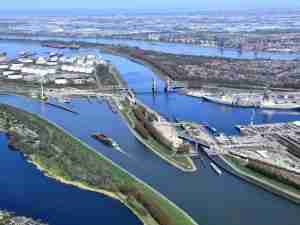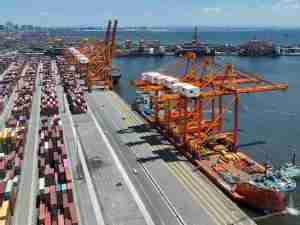The West African nation is in the midst of an overhaul of its cocoa sector that will set a fixed price for the 2012/2013 season to guarantee incomes for hundreds of thousands of farmers and encourage reinvestment in its aging plantations.
Under the reform, the Coffee and Cocoa Council (CCC) will establish both a CIF (cost insurance, freight) export price and a farmgate price, which takes into account taxes and estimated handling costs incurred to get the beans from farm to port.
Exporters told Reuters the CCC announced at a June 27 meeting it would incorporate an over-land transport cost estimate of 51.7 CFA francs ($0.10) per kilogram of beans into a final estimate of all handling costs to be set in September.
But the middlemen, known as "pisteurs", who handle the bulk of cocoa supplies complain that extortion rackets run by police, soldiers and customs officials, who still man illegal roadblocks despite the end of a brief civil war last year, mean the real cost of transporting beans is much higher.
"The total cost of delivering a kilogram of beans to port comes to an average of 125 francs, which means that their price is unrealistic and undervalued," said Ali Jouber, who buys around 6,000 tons of cocoa per season as a middleman in Daloa.
The marketing body declined to speak about the issue when contacted by Reuters.
The general manager of one trading company at the June meeting told Reuters transport costs from collection centers in the towns to ports were set at 12 francs per kilo and at 39.7 francs from the bush to the collection centers, including payments to pisteurs and others - making 51.7 francs in all.
Working at a Loss?
The government says it is taking steps to tackle the problem. But some buyers say they may shut down operations if the allowance is not revised before the start of the season on Oct. 1 for fear it will force them to operate at a loss.
"We can discuss everything, but we can't accept 51 francs from village to port when there are pisteurs and costs on the road to pay," said Mamadou Ben Sylla, a middleman based in the southwestern town of Meagui.
"The Council must raise the cost, and if it's at least 100 francs, then we can sort things out so we can work. Otherwise, we'll have to stop everything. We don't work to lose money."
Exporters, who under the reform programme are currently buying the 2012/13 harvest in twice-daily auctions, fear the looming showdown could interrupt supply and endanger their ability to deliver on contracts.
"There is a major risk of a boycott of bean collection, and that could destabilize the entire system, because the middlemen alone collect 80 percent of the cocoa production," the foreign trader said.
"We're heading straight towards a blockage in buying or even a work stoppage in October if there isn't an agreement acceptable to everyone." (Reuters)










